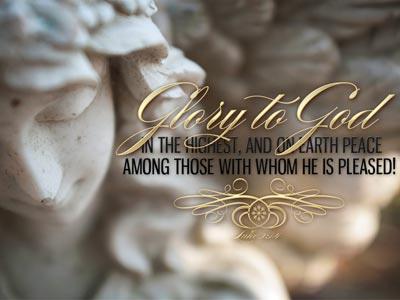-
Heaven's Open Door
Contributed by Carl Greene on Nov 28, 2017 (message contributor)
Summary: In the middle of nowhere, Jacob encounters God and realizes God’s presence encompasses more that what just his eyes see.
Last week, we looked at a central figure of the OT, Abram, later named Abraham. We talked about some of the similarities between the unknowns of Abrahams life, such as the lack of any information about his childhood, and that of Jesus and how little is know of his childhood.
We discovered that as Abram, he fathered a son by his wife’s servant Hagar, and whose name is Ishmael. Just after that event, God changed Abram name from Abram (Father of your native land) to Abraham (Father of the multitudes) and, as Abraham, at age around 100 yrs, Abraham became the father of Isaac.
It’s interesting how, if we remember, Abram passed his wife Sari off as his sister to avoid, in his mind, being killed, by the Egyptians when he fled to Egypt because of a famine. Moreover, we see Isaac doing the same thing, passing off his wife as his sister when he encounters Abimelech, the king of the Philistines, again to avoid in his mind, his death.
Isaac’s wife, Rebekah, like Abram’s wife, was barren. Isaac however, prayed to the Lord on behalf of his wife and she became pregnant with twin boys. Scripture tells us they jostled with each other within her womb. When they were born, the first son was red and his body hairy and so they named him Esau…which means….hairy. The second boy was born grasping the heel of his brother, and so they named him Jacob… which means he grasps the heel, or figuratively, he deceives.
We’ll talk about Esau later, this morning we move to Jacob, who by the way is the favorite son of Isaac’s wife, Rebekah. Esau on the other hand was Isaac’s favorite son.
We can see that Jacob from our reading was what we can consider a natural man vs. a Godly man if there ever was one. He looks only to his own instincts to interpret life. As we read Jacob’s story to this point, he’s already made a hash of things. He’s more crooked than a road in east Tennessee. He’s cheated his brother Esau out of his birthright, deceived his blind old man into giving him the blessing meant for Esau, and is now on his way to stay with relatives because things have gotten too hot for him back home. His name surely fits his lifestyle to this point anyway.
No matter. God sees something valuable in this schemer that apparently even Jacob himself doesn’t perceive.
Here we find Jacob, tired from his travels and probably pretty stressed out from worry. And so, in “a certain place”… and interesting phrase. God doesn’t tell us he stopped at just any old place, but “a certain place”… According to Jewish tradition, that place is the very same place Abraham was to have sacrificed Isaac and where Abraham had and encounter with “the angel of the Lord.” The place, according to Jewish tradition, in Mt Moriah, or the “Temple Mount” located in Jerusalem.
MOVE
That night as he lay, alone and vulnerable under the stars, Jacob experienced a remarkable dream… a stairway stretching from earth to heaven, and angels of God ascending and descending this stairway… Jacob encounters God in the dream promising to give Jacob many descendants who will be blessed and will occupy the land through which Jacob has been passing. What’s more, God promises to be with Jacob “I will not leave you”… says God. God made a promise and God fully intended to fulfill it….”until I have done what I have promised you.” And at this point, at least, God asks for nothing in return. This is an unconditional promise from God.
The dream reminded Jacob that the realities of God’s presence encompass much more than what he could see around him! There is an eternal dimension --- heaven --- that exists as well, and it is closely connected to the life we know.
“I will not leave you”…What welcome words for a man alone, afraid for his life and on the run. Jacob had no family, no home and yet the God of the universe was promising to accompany him, reminding Jacob that all the promises He’d ever made were still valid.
MOVE
When Jacob awakes, he’s perceptive enough to realize that something very important has happened, and that although he hadn’t expected it, the Lord really was in that place. Jacob knows he has been in the very presence of God. He was afraid and stands in awe of God’s presence in what he had thought was the middle of nowhere. And so, he builds an altar (making a pillar out of his pillow) (Twelve stones from one? – Jewish tradition) . And he names the place the place Beth-El, which means “the house of God.”
Now it’s important to note that Jacob responded further (in vv. 20-22) by making a vow that he would worship the Lord as his God and that he would give the Lord a tenth, recognizing God’s sovereignty over him. But we see Jacob’s vow was conditional, “If God will be with me, and [if God] will keep me in this way that I go, and [if God] will give me bread to eat and clothing to wear, so that I come again to my father’s house in peace, then the LORD shall be my God ...” unlike Yahweh’s unconditional promises; but it was a good start for Jacob, nevertheless.

 Sermon Central
Sermon Central



